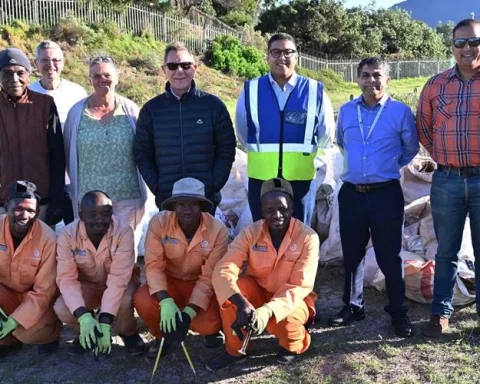The City of Cape Town’s recent decision to waive application charges for leasing dangerous lanes in the Mitchells Plain community is expected to enhance safety and security for residents while reducing crime. The initiative is a result of years of community involvement and local governance, and property owners can now lease the lanes for a nominal monthly fee. The Mitchells Plain Lane Closure Project Committee will oversee the efficient execution of the project, setting a precedent for other communities grappling with similar issues.
How will the recent resolution to abandon application charges for leasing over 300 dangerous lanes empower Mitchells Plain community?
The resolution to abandon application charges for leasing dangerous lanes is projected to restrain criminal activities and bestow a sense of safety and security upon the residents. The waiver will allow neighboring property owners to lease the lanes for a minimal monthly fee, reducing crime while enhancing the aesthetics of the area. This exceptional initiative is a testament to the power of community collaboration and local governance in transforming neighborhoods.
A Paradigmatic Leap for Community Development
In a groundbreaking move for the Mitchells Plain locality, the recent resolution to abandon application charges for leasing over 300 dangerous lanes is set to embolden residents to conjure up a safer and more visually appealing milieu. This historical turning point culminates from years of persistent efforts and cooperative spirit, capturing the quintessence of community involvement and local governance.
In 2013, with the pioneering initiative to close several of these hazardous lanes in the Mitchells Plain district, the City of Cape Town led the way. A test project was launched in Westridge, Portlands, and Woodlands, which initially led to the closure of 57 lanes. These once precarious passageways were transformed into spaces for community gardening and other beneficial activities.
Bridging Local Needs and City Priorities
The exemption of application charges for leasing these lanes is an exceptional illustration of how the City of Cape Town has esteemed local necessities and reacted to vital feedback from community members. The resolution is projected to restrain criminal activities, bestowing a sense of safety and security upon the residents.
Alderman James Vos, the Mayoral Committee Member for Economic Growth, shed light on the importance of this decision. At an estimated cost of R8 million, the City will bear the closure of nearly 318 lanes. However, the residents will be required to pay a nominal annual rent.
Alderman Vos, underlining the wider implications, stated, “This initiative is more than just community cost-saving, it also symbolizes our dedication to streamline business processes and, crucially, help in curbing criminal activities.”
Collaborative Effort for a Safe and Beautiful Neighborhood
The Mitchells Plain Lane Closure Project Committee, a group composed of various officials and political representatives, will spearhead this initiative. The committee will work in association with Sub-councils 12 and 17 to ensure a well-coordinated and efficient execution of the project.
Councillor Solomon Philander, Chair of Sub-council 12, lauded the initiative as an important leap towards crime reduction. He pointed out that the advertising fee waiver would allow neighboring property owners to lease the lanes for a minimal monthly fee, thus reducing crime while enhancing the aesthetics of the area.
Councillor Elton Jansen, Chair of Sub-council 17, joined in the approval, stating that the decision would help residents make their immediate vicinity safer and more beautiful.
Towards a Safer and Vibrant Mitchells Plain
From a particular focal point, the lane closure discussion has broadened to include all suburbs of Mitchells Plain, indicating another landmark in the community’s path towards progress and development. With the Council ratifying the decision, the next phase of inviting property owners to submit lease applications is set to kick off soon. This lays the foundation for a safer and more dynamic Mitchells Plain.
This exceptional initiative is a testament to the power of community collaboration and local governance in transforming neighborhoods. It is an inspirational case study for other communities grappling with similar issues, proving that with concerted effort and strategic planning, significant progress is achievable. The residents of Mitchells Plain can look forward to a safer, more beautiful, and thriving community, setting a precedent for others to follow.
1. What is the recent resolution regarding leasing dangerous lanes in Mitchells Plain?
The recent resolution by the City of Cape Town entails waiving application charges for leasing over 300 dangerous lanes in Mitchells Plain in order to enhance safety and security for residents while reducing crime.
2. What is the aim of the lane closure project committee?
The Mitchells Plain Lane Closure Project Committee will oversee the efficient execution of the project, setting a precedent for other communities grappling with similar issues.
3. How will the initiative reduce crime in the area?
The waiver will allow neighboring property owners to lease the lanes for a minimal monthly fee, reducing crime while enhancing the aesthetics of the area.
4. What is the significance of the decision made by the City of Cape Town?
The decision made by the City of Cape Town to waive application charges for leasing dangerous lanes in Mitchells Plain is an exceptional illustration of how the city has esteemed local necessities and reacted to vital feedback from community members.
5. Who is involved in the Mitchells Plain Lane Closure Project Committee?
The Mitchells Plain Lane Closure Project Committee is composed of various officials and political representatives, working in association with Sub-councils 12 and 17 to ensure a well-coordinated and efficient execution of the project.
6. What is the broader implication of this decision?
Apart from community cost-saving, this initiative also symbolizes the City of Cape Town’s dedication to streamline business processes and, crucially, help in curbing criminal activities, according to Alderman James Vos, the Mayoral Committee Member for Economic Growth.












